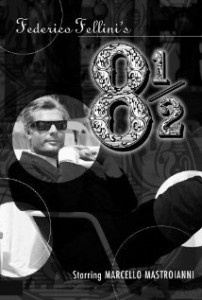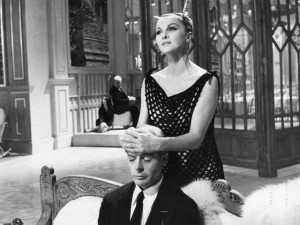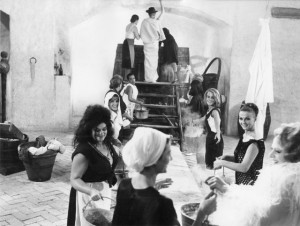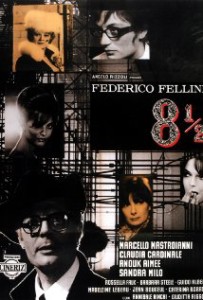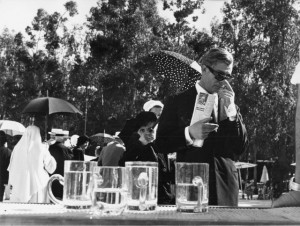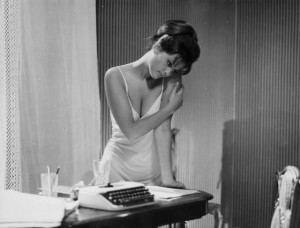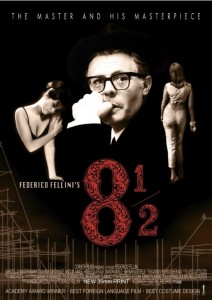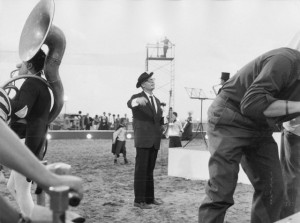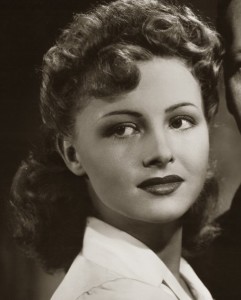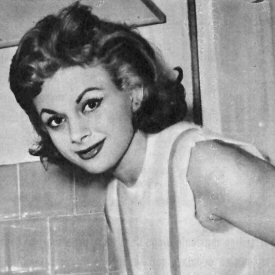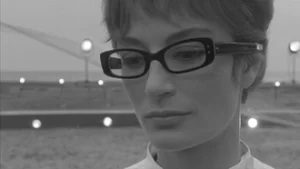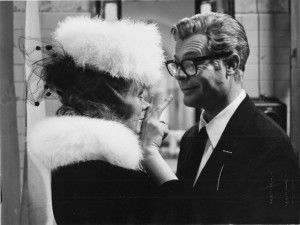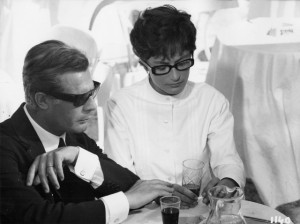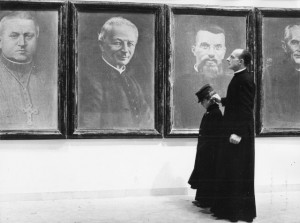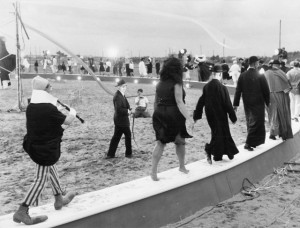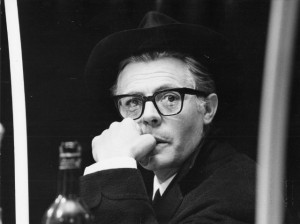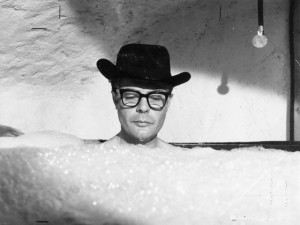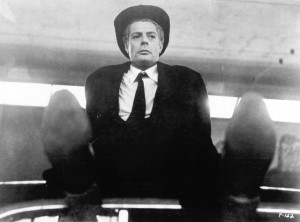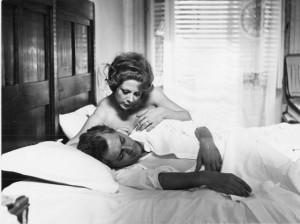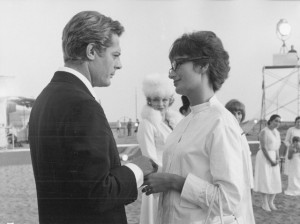8½ [Otto e Mezzo] ***** (1963, Marcello Mastroianni, Anouk Aimée, Claudia Cardinale, Sandra Milo, Barbara Steele, Madeleine Lebeau, Rosella Falk, Guido Alberti, Edra Gale) – Classic Movie Review 634
Federico Fellini’s legendary seventh solo film from 1963 8½ [Otto e Mezzo] focuses on the trials and tribulations of film-making. It stars Marcello Mastroianni, Anouk Aimée, Claudia Cardinale and Sandra Milo.
Federico Fellini’s legendary seventh solo film from 1963 is a semi-autobiographical film about the trials and tribulations of film-making and a portrait of the artist in the throws of a midlife crisis and writer’s creative block. It emerges as one of the great, flamboyant Fellini films, and one of cinema’s greatest films too.
With six previous movies as well as two short films and his first film in 1950 Lights of Variety, co-directed with Alberto Lattuada, which he reckoned as three halves, Fellini finds he can call his film 8½ [Eight and a Half] (Otto e Mezzo).
Eight and a Half reunites Fellini with his La Dolce Vita star Marcello Mastroianni, in a different character but again as his alter ego.
This time Mastroianni is charismatically playing Guido Anselmi, a troubled film director trying to relax after his last big hit and concentrate on dreaming up his next. But instead he is being harassed by his wife Luisa (Anouk Aimee), his mistress Carla (Sandra Milo), his ideal actress (Claudia Cardinale), his producer (Guido Alberti), friends, the paparazzi, a scathing intellectual and past collaborators looking for more work.
He is desperately trying to realise his next project but is unable to come up with a new idea. Meanwhile he is fantasising about the major events of his life and the women he has loved and left, while teetering on the verge of a nervous breakdown, so he visits a health spa near the chosen location for his new film. The extraordinary set is a giant missile ramp on the beach, awesome and menacing.
Meeting an ancient cardinal sets him off on a memory of a schoolboy escapade on the beach, where he meets the huge, grotesque, voluptuous La Saraghina (Edra Gale) who dances for money. Worryingly, as he fantasises, Guido’s dead mother (Giuditta Rissone) intrudes in a fetishistic scene with his mistress and he controls the women he has known with a whip. Fellini is equally attracted and repelled by women, fascinated by them, but apparently little understanding them.
Fellini keeps the performances, visuals and editing totally striking and startling enough throughout that it rivets the attention for 138 minutes with what in truth on the surface seems a small, minor personal statement. It’s all in the brilliant way he does it, controlling his apparently unstructured kaleidoscope of the mind, memory and imagination majestically and creating a work of haunting beauty.
Cinematographer Gianni Di Venanzo’s brilliant, often surreal black and white images are astounding, all moved along beautifully bathed in composer Nino Rota’s magic music.
At one point during pre-production, Fellini had completely forgotten what his next work was about, but later during a birthday party he got a new idea: a film about a film director who was going to direct a film, but had forgotten what it was about. It would be great if every artist’s mental or creative crisis could produce something as fascinating as this! No wonder he originally called it La Bella Confusione (The Beautiful Confusion). He put a wry note to himself on the camera: ‘Remember, this is a comedy’.
It won Oscars in 1964 for Best Foreign Film and Best black and white Costume Design (Piero Gherardi).
Fellini often named it as one of his favourite films ever, including other directors’ work. It is the basis of the Broadway musical Nine, which won the Tony for best musical in 1982 and for best musical revival in 2003 and was filmed with Daniel Day-Lewis.
On its 2015 UK release, it looks a treat in its New Digital Restoration, beautifully restored from the original negatives by Gaumont and Eclair.
Madeleine Lebeau
It also stars Madeleine Lebeau as Madeleine, the French actress. Lebeau played Humphrey Bogart’s jilted mistress Yvonne, in Casablanca (1942). She died on 1 May 2016, aged 92.
Sandra Milo
Sandra Milo (born Salvatrice Elena Greco; 11 March 1933 – 29 January 2024) won a Nastro d’Argento for Best Supporting Actress for each of her roles in Federico Fellini’s 8½ and Juliet of the Spirits.
Anouk Aimée
Anouk Aimée (born Nicole Françoise Florence Dreyfus) (27 April 1932 – 18 June 2024) appeared in 70 films from 1947 to 2019.
Claudia Cardinale
Claude Joséphine Rose Cardinale (15 April 1938 – 23 September 2025)
© Derek Winnert 2014 Classic Movie Review 634
Check out more reviews on http://derekwinnert.com

